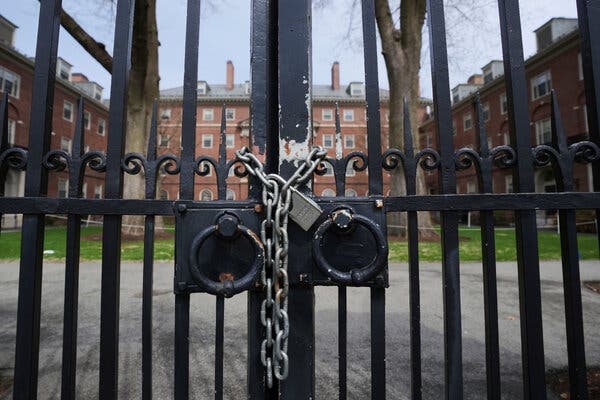America’s democracy faces significant challenges as divisions grow within society. President Donald Trump has disrupted traditional alliances and norms, prompting many citizens to seek ways to foster a healthier political environment. One individual, reflecting on their experience during Trump’s early presidency, decided to take action by accepting a 50 percent pay cut from The New York Times and co-founding a nonprofit organization called Weave. This initiative aims to address the underlying issue of social distrust, which many believe is disintegrating communities across the nation.
In the years since its inception, Weave has made strides in supporting local leaders, referred to as “Weavers,” who are working to rebuild trust within their communities. Under the leadership of Fred Riley, the organization has ambitious plans to expand its reach to 75 communities within three years. The journey has not been without its challenges, as the founder admits that their background in journalism did not translate easily into nonprofit management. Ultimately, they stepped back from daily operations, now serving in a non-paid capacity as chair.
This experience has reinforced a central belief: America is grappling with a deep-seated issue of segregation, not only along racial lines but also along class lines. The founder’s extensive travel throughout the country has revealed stark contrasts between affluent areas, where college graduates dominate, and less privileged regions, where high school graduates prevail. In 2003, Harvard scholar Theda Skocpol highlighted this issue in her book “Diminished Democracy,” stating that highly educated individuals increasingly withdrew from cross-class community organizations, opting instead for professional networks that reflect their own social status.
Recent research published in the journal Nature underscores this trend. A survey of leaders across 30 sectors, including law and media, revealed that nearly all of society’s power brokers hold college degrees, with 54 percent hailing from just 34 elite institutions. This concentration of opportunity contributes to a system where children from affluent families receive considerably better educational prospects than those from lower-income backgrounds. For instance, according to a 2017 study led by economist Raj Chetty, children from the wealthiest 1 percent are 77 times more likely to attend Ivy League schools than those from families earning $30,000 or less.
The widening academic gap between socioeconomic classes has become increasingly alarming. In his book “The Meritocracy Trap,” Daniel Markovits argues that this divide is now greater than the historical achievement gap between white Americans and Black Americans during the Jim Crow era. Such a realization compels reflection on how society has inadvertently recreated systems of segregation based on class.
Resistance to Trumpism is undeniably important, yet it is equally vital to address the broader issue of global populism and the caste systems that have developed over time. Many individuals express concern over Trump’s actions in the coming years, but the more pressing question is how to counteract the factors that have given rise to such movements. The absence of substantial reforms from the Democratic Party, particularly in education, is notable. Previous administrations, including those of Bill Clinton and Barack Obama, attempted to disrupt existing caste systems and broaden opportunities for marginalized groups, but recent efforts have waned. Current President Joe Biden has not prioritized educational reform, and his vice president, Kamala Harris, lacked a robust agenda on this front during her presidential campaign.
In contrast, research by Michael Petrilli from the Thomas B. Fordham Institute highlights a shift in education reform activities, with red states increasingly adopting innovative practices. This has resulted in significant improvements in student performance in states like Mississippi and Alabama. The Democratic Party risks becoming synonymous with the status quo, particularly as it defends institutions targeted by Trump without addressing underlying truths in his critiques.
To effectively counter Trumpism, those opposed to his leadership must focus on two critical objectives: resisting his actions while simultaneously enacting reforms that address the root causes of societal division. The priority should be to dismantle the existing caste system. Policy reforms should direct investments into job sectors that do not require a college degree, while institutional changes are necessary to create more inclusive environments across various sectors, including media and the arts.
Finally, fostering greater social integration is essential. Individuals can contribute by participating in cross-class organizations and engaging in activities that promote interaction among diverse groups. Even small efforts can yield meaningful connections. The author shares a personal anecdote about wearing a New York Mets hat, which sparked conversations with people from various backgrounds across the country. These interactions serve as a reminder that despite existing divisions, there remains potential for unity and understanding within the nation.
In conclusion, addressing the challenges facing America requires a comprehensive approach that includes both resistance to harmful political movements and a commitment to reforming the systems that perpetuate inequality. The path forward lies in recognizing and dismantling the barriers that divide communities, fostering a more inclusive society for future generations.






































































